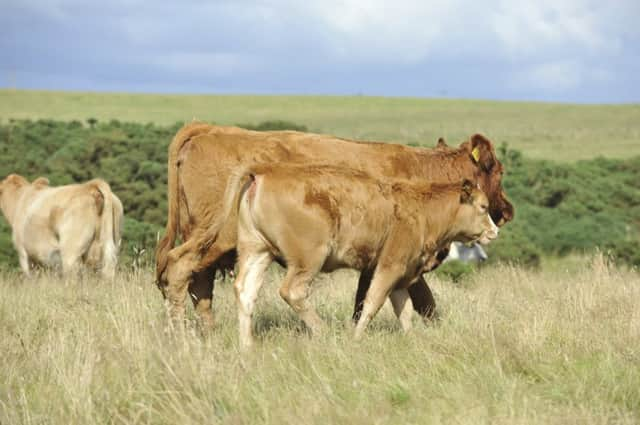Vet chief stresses importance of disease surveillance


Speaking at the British Veterinary Association (BVA) Scottish dinner last night, president Robin Hargreaves said that robust veterinary surveillance was essential if Scotland was to maintain its worldwide reputation for excellence in food.
He said that any changes to the current system of monitoring animal diseases should be based on good surveillance and diagnostic outcomes – and not purely on cost savings.
Advertisement
Hide AdAdvertisement
Hide Ad“In England and Wales, we have raised concerns that the Animal Health Veterinary Laboratory Agency is in danger of dismantling the current system before the new one has been tested.”
And he said that, despite the completion of the Kinnaird report in 2011, detailed proposals were still to be revealed in Scotland: “The proposal to centralise laboratory services must only be carried out if it improves efficiency and maintains or enhances current performance, and the use of commercial labs should be put into the mix as modelling work is carried out.”
Touching on the independence debate, he stressed that a joined-up approach on disease surveillance and monitoring should be adopted across the whole of the UK: “Whatever happens, it must be recognised that Great Britain is a single epidemiological unit and disease knows no boundaries.”
Hargreaves said that although the BVA was a non-partisan organisation, some important questions still remained to be answered on how independence would impact on the veterinary industry.
“It is clear that there has been a degree of frustration from some members who are looking for clearer answers about the future regulation of our profession in an independent Scotland.
“As colleagues in Ireland have pointed out, it took over 50 years for an Irish regulatory body to take over the duties of the Royal College – but we would expect any transition for Scotland to be a little quicker!”
He said that outstanding issues remained on: veterinary regulation; on funding for Scotland’s network of world-class research institutes and the potential for duplication; on funding for places at Scotland’s two vet schools; and on veterinary surveillance.
However, he congratulated the Scottish industry on its ability to pull together, citing the bovine viral diarrhoea (BVD) eradication scheme: “When the scheme moved into its third phase in January, BVA strongly welcomed the new control measures.
Advertisement
Hide AdAdvertisement
Hide Ad“We have championed the approach in other parts of the UK and applaud the industry’s commitment to tackling this endemic and crippling disease head on.”
However, Hargreaves indicated that Scotland’s ability to focus on tackling this disease was based, in part, on the country’s freedom from the scourge of TB, which was a major problem in many parts of England.
He said that vets remained committed to getting on top of the disease, but warned Scottish cattle keepers: “In the meantime, good biosecurity and purchasing decisions are the key to keeping the disease out of Scotland.”